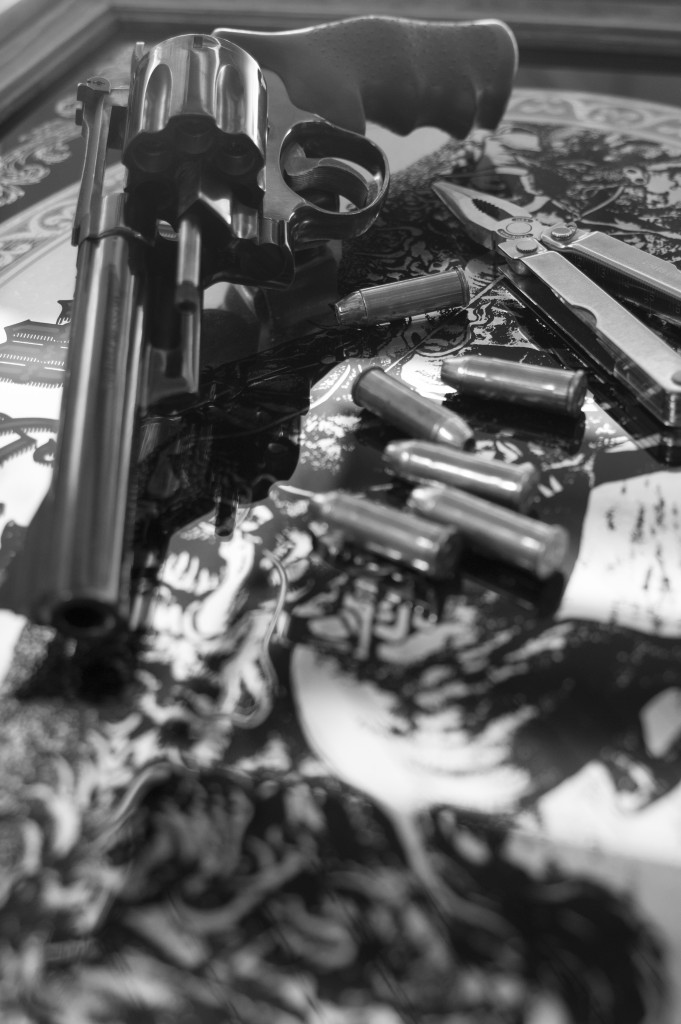
A variety of tattoos cover his arms. His salt and pepper hair is accompanied by honey brown aviator sunglasses. This 6’5” military veteran quietly sits underneath the bright sun, remembering a time when he never imagined he would become a professional bounty hunter. A raspy voice shares his experience working alongside his wife traveling the United States.
When someone fails to show up for a mandated court date, or doesn’t pay bail, compensation is given to whoever finds the fugitives and turns them in. Each state has different requirements, but bounty hunters are responsible for injuries and property damage. California grants bounty hunters the right to capture a fugitive at any time, break into homes, and pursue a felon into another state. However, bounty hunters can spend up to life in prison for capturing the wrong person. Laurien and Luana DuTremble have worked together as professional bounty hunters for five years. In the past decade, bounty hunters have captured an estimated 25,000 fugitives in the United States with a return rate of 99 percent, according to Rob Dick, a bounty hunter for the past 29 years. Even with these statistics they often aren’t welcome in the law enforcement community.
“Either they hate us or they think we’re really cool and love us,” Laurien DuTremble said. “But I’d like to see coordination and cooperation between all law enforcement agencies so we can get those people off the streets.”
DuTremble’s wife and partner said that her prior profession as a receptionist wasn’t as exciting and flexible.
“This was just so cool. Being our own bosses and feeling like we were doing good,” Luana DuTremble said. “The motivation for me was helping these people that fronted money to these con’s that think they’re so hip and trick you with their smile and wit.”
Not knowing what kind of situation he could be entering, Laurien DuTremble has feared hurting someone innocent. It is important to know when to use lethal and nonlethal force. Required licenses and permits are necessary to be armed with tools such as tasers, pepper spray and a baton.
“I’ve tackled gang members off bicycles. I’ve pulled 6’8”, 300 pound guys out of trucks and to the ground in a split second without any hesitation or fear. But I have always had a fear of someone innocent getting hurt. I think one of the main reasons it never happened was because it was always and foremost on my mind.” Laurien DuTremble said.
Dick, met Laurien through training courses he offers for those who are interested in bounty hunting. With a background as a professional bodyguard for the Casey Anthony trial, his extensive skills and experience have given him a reputation.
Laurien and Dick became partners and traveled the United States at the beginning of his career.
“You go through a few [partners] until you get a rhythm. It’s like almost being married,” Dick says. “You have to be able to not only get along with someone but think alike when you’re making an arrest. Laurien and I, we just knew what each other was thinking.”
At the age of 60, Laurien DuTremble stays in shape by training in Brazilian Jiu-Jitsu two-to-three times a week. There have been circumstances where a suspect, under the influence of drugs, became twice as strong.
His trainer makes sure that Laurien is exhausted before entering a cage fight, reminding him how tired he will feel fighting for his life.
“He made sure that when I got into a fight I was already out of breath,” Laurien DuTremble said. “That’s what you’re doing when they’re going after your gun. You are going to be fighting for each breath and you are going to do anything and everything possible.”
Many laws have changed throughout the years, making it difficult to earn a fair wage.
“I didn’t do it for the money,” Laurien said with a serious glare. He said he’s fortunate to be alive and he believes he wouldn’t have been able to survive everything he has without faith.
“I have always been religious. Nothing could have allowed me to escape some of the things I have been through in my life without it being a miracle.”



